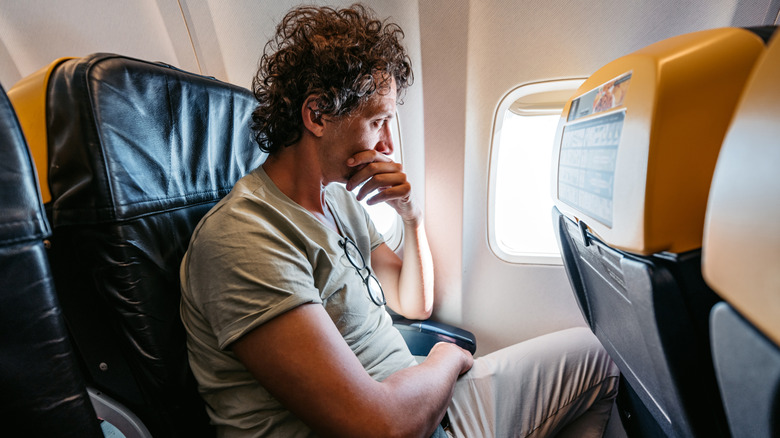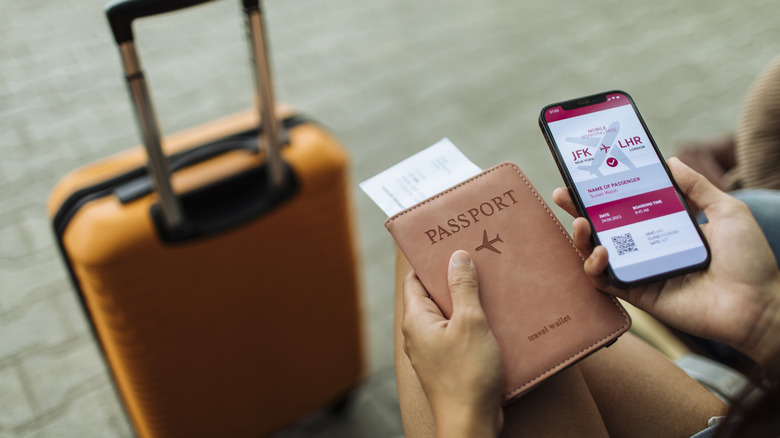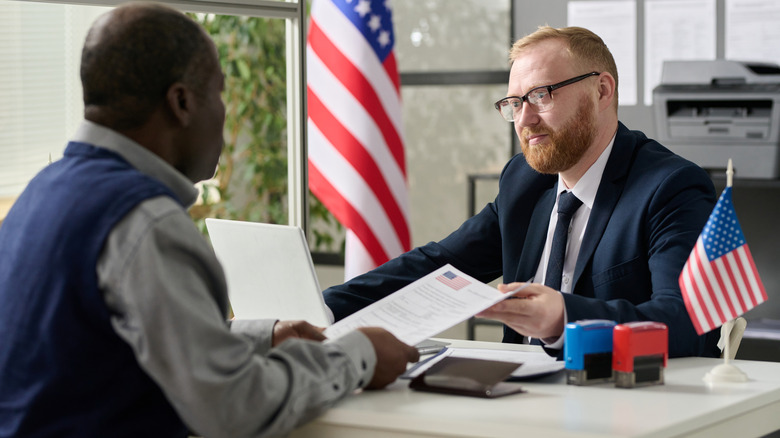This Crucial 'Golden Rule' Of Solo Travel Eliminates A Very Stressful Possibility
Your bag is gone. Stolen or lost, it doesn't matter — that bag has vanished, and you'll never see it again. Worse, your bag contains all your documents, including passport and visas, insurance card, and driver's license. You could kick yourself for being so careless, but it's too late now. All those vital records have disappeared, and you are in a foreign country, all alone. You thought it would be fun to travel solo, and it was. Now everything's changed, and there's no one to help you or make you feel better or vouch for you at the consulate. You're alone and literally undocumented.
But there's good news: Before you hit the road, you made copies of all your documents. You also made a spreadsheet of important data, like your passport number, driver's license number, and phone numbers for relatives and friends. You always knew this happenstance was possible, and you didn't want to take any chances. Now, you may not have the physical items on your person, but you have all the information you need, including images of what they looked like. Damage control will be a lot easier with this information at your disposal. Thank goodness you remembered to email it all to yourself.
This hypothetical situation is a borderline worst-case scenario. However, solo travelers lose their documents every day, and copying personal information is a brilliant precaution against loss or theft. Securing your money and important documents is a must for people traveling alone, but even the most savviest adventurers make mistakes. You might call backing up your documents the "golden rule" of solo travel.
How to back up documents
By definition, solo travelers aren't accompanied by trusted friends who can retain records or verify their identity at the embassy. For passports, driver's licenses, and other government-issued ID, you'll want to take either a clear digital photo (saved as a JPG) or scan them as a PDF. File sizes are reasonable for both, and these formats are easy to open on just about any computer. One option is to compose an email to yourself and attach the files; this way, you'll have them in both your outbox and inbox. As long as you can access your email, you'll have pictorial proof that both exist, which should expedite replacements.
Keep any digital receipts, such as flight bookings and hotel reservations, in your email as well. Digital documentation is almost universal these days since fewer travelers print out paper copies of their itineraries or hold onto physical tickets. Do remember to keep those emails handy, though. You may also want to store important phone numbers in your email or cloud-based storage, in case you lose or misplace your phone as well. These are just some of the ways you can feel safer while traveling alone.
Of course, you can't lose important documents that you don't have in the first place. This is why travelers should avoid carrying anything they don't need, such as checkbooks, work badges, and social security cards. These can end up in your wallet or purse, but you probably won't need them on the road, and they'll only be a liability. Leave them at home, where they belong.
What to do when you lose your documents overseas
For every document you lose, you also lose certain important privileges. No driver's license? You can no longer rent or operate a motor vehicle. Missing visa? Many immigration officials are very serious about these special travel documents, such as Mexico's tourist card system for vacationers. No passport? You can't cross borders or even check into a foreign hotel without that vital booklet. Ironically, these official limitations can make it even harder to replace the documents you've lost, reducing your ability to get around or find shelter.
First and foremost, you should find the embassy or consulate of your home country and make an emergency appointment. These institutions have standard protocols for this exact situation, and you will hardly be the first person to lose important documents while traveling overseas. For U.S. travelers, a police report is not required in order to process your replacement paperwork. Since passports are usually required at hotel check-in, ask the consulate about accommodations.
The U.S. State Department — and equivalent institutions in other countries — want to get you home safe, which may mean expediting your replacement documents and even loaning you money for your return trip, if necessary. Importantly, a passport that is reported missing is no longer valid, even if you find it later. However it plays it, digital copies of your documents will help the process along.


